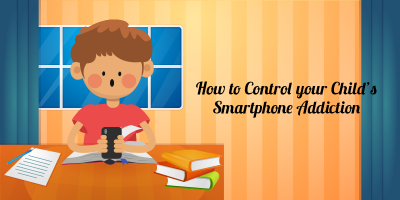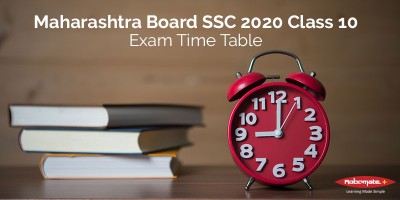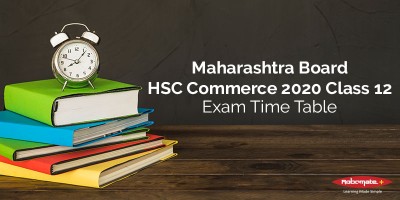State Board Commerce (XI-XII) - Test Papers
CBSE Class 10 Chemistry Syllabus
The list of units in CBSE Class 10 Chemistry is mentioned below.
Chemical Reactions and Equations
Metal and Non-metals
Periodic Classification of Elements
Acid, Bases and Salts
Carbon and its Compounds
Our Environment
The CBSE board is known for its standard principles in framing the syllabus and when it comes to class 10 board exams, special care is taken for the student’s performance and future. The syllabus is designed based on flexibility so that it can be adapted by any kind of student based on different potentials and capabilities.
Chemical Reactions and Equations
A.1 Chemical equation
A.2 Balancing chemical equation
A.3 Types of chemical reactions combination, decomposition, displacement, double displacement
A.4 Precipitation, neutralization, oxidation and reduction
Acid, Bases and Salts
B.1 Acid, Bases and Salts
B.2 What do all acids and bases have in common
B.3 How strong are acids or base solution. Importance of pH in everyday life
B.4 Salts
B.5 Preparation and uses of sodium hydroxide, Bleaching powder
B.6 Baking soda, Washing soda and Plaster of Paris
Metal and Non-metals
C.1 Physical properties & Chemical properties of metal
C.2 Reactivity series
C.3 How do metals and non metals react
C.4 Occurrence of metals
C.5 Corrosion and its prevention
Carbon and its Compounds
D.1 Bonding in carbon- covalent bonding
D.2 Versatile nature of carbon
D.3 Saturated and unsaturated compounds, chain, branches and rings
D.4 Homologous series
D.5 Nomenclature of carbon compounds
D.6 Chemical properties of carbon compounds (combustion)
D.7Chemical properties of carbon compounds
( oxidation, addition and substitution reaction)
D.8 Properties and reactions of Ethanol
D.9 Properties and reactions of Ethanoic acids
D.10 Soaps and Detergents
Periodic Classification of Elements
E.1 Early attempts at the classification of elements
E.2 Mendeleev’s periodic table
E.3 Modern periodic table
E.4 Trends in modern periodic table
E.5 Periodic properties of elements
E.6 Electro-negativity of element
Our Environment
F.1 What happens when when we add waste to our surrounding
F.2 Ecosystem: what are its components
F.3 How do our activities affect environment
CBSE Class 10 Physics Syllabus
Here is the list of Units included in CBSE Class 10 Physics syllabus:
Light reflection and refraction
Electricity
Human eye and colorful world
Magnetic effect of electric current
Sources of energy
Management of Natural Resources
The CBSE syllabus is known globally for its appropriate format and flexible pattern, and that’s the reason for it’s strong hold in the field of primary education, along with providing sample papers and solved question papers.
Light reflection and refraction
A.1 Reflection of light
A.2 Spherical mirrors: Formation of image
A.3 Uses of spherical mirrors
A.4 Mirror formula and magnification
A.5 Refraction of light
A.6 Refraction by spherical lenses
A.7 Lens formula and magnification – Power of lens
Human eye and colorful world
B.1 The human eye
B.2 Power of accommodation
B.3 Why do we have two eyes
B.4 Defects of vision and its correction: myopia
B.5 Defects of vision and its correction: Hypermetropia
B.6 Defects of vision and its correction: Presbyopia
B.7 Defects of vision and its correction: Astigmatism
B.8 Refraction of light through prism
B.9 Dispersion of white light through glass prism
B.10 Atmospheric refraction
B.11 Scattering of light
Electricity
C.1 Electric current and circuits
C.2 Electric potential and potential difference
C.3 Circuit diagram
C.4 Ohm’s law
C.5 Factors on which the resistance of conductor depends
C.6 Resistance of a system of resistors
C.7 Heating effect of electric current
C.8 Electric power
Magnetic effect of electric current
D.1 Magnetic field and field lines
D.2 Magnetic field due to current carrying conductors
D.3 Force on current carrying conductor in electric field
D.4 Electric motor
D.5 Electromagnetic induction
D.6 Domestic electric circuits
Sources of energy
E.1 What is a good source of energy
E.2 Conventional sources of energy: fossil fuels
E.3 Conventional sources of energy: Hydro power plant
E.4 Alternate or non- conventional sources of energy: Biomass bio-gas
E.5 Non Conventional Sources of Energy -Ocean Thermal Energy
E.6 Non Conventional Sources of Energy -Solar Energy – Photo voltaic Cell
E.7 Non Conventional Sources of Energy – Tidal Energy
E.8 Non Conventional Sources of Energy – Geothermal Energy
E.9 Non Conventional Sources of Energy – Ocean Thermal Energy
E.10 Environmental consequences
E.11 How long will an energy source last us
Management of Natural Resources
F.1 Save the Environment from Environmental Pollution – Reuse
F.2 Save the Environment from Environmental Pollution – Reduce
F.3 Save the Environment from Environmental Pollution – Recycle
F.4 Why do we need to manage our natural resources
F.5 Forest and wildlife
F.6 Sustainable management
F.7 Water for all : dam
F.8 Water harvesting
F.9 Coal and petroleum
F.10 An overview of natural resource management
Watch Video Lectures of CBSE Class X Physics Course for Free
CBSE Sample Papers
The sample papers are specifically designed by the CBSE to fulfill all the study requirements for the students to foster in their study.The syllabus of the sample papers is based upon the NCERT and the board of CBSE.
How these CBSE Sample papers assist the students?
- CBSE sample papers are designed according to the CBSE pattern of question papers that covers all the important material for the each class students to prepare them for exam’s perspective.
- It includes the question based and solved question papers that are prepared by the expert teachers according to the current market scheme.
- The students can study the topics in depth solve these important questions to build their strong foundations for a successful exam.
- The CBSE syllabus covers all the classes subjects including English, Math, Hindi, Economics, Accountancy, Social Science, History, Sanskrit and much more with the question and answers exercises too.
- CBSE sample papers are specifically designed to practice more and more for the better understanding of topics to understand the concepts more.
- All the educational material is designed for the comprehensive understanding of students to allow them to enhance their skills including their writing, reading and speaking abilities.
- This platform covers all the educational needs of students to help them foster for a better future
- Those who study the CBSE syllabus has a chance to get admission in the professional course in the future. So it gives the bright future to children.
Download Latest CBSE Sample Papers :
- CBSE Sample Test Paper for Class 10 Social Science
- CBSE Sample Test Paper for Class 10- Social Science
- CBSE Sample Test Paper for Class Std 10 Science
- CBSE Sample Test Paper for Class Std 10 Science
- CBSE Sample Test Paper for Class 10 Maths
- CBSE Sample Test Paper for Class 10 Maths
- CBSE Sample Test Paper for Class 10 Marathi
- CBSE Sample Test Paper for Class 10 Hindi
- CBSE Sample Test Paper for Class 10 Hindi
- CBSE Sample Test Paper for Class 10 French
- CBSE Sample Test Paper for Class 10 English
- CBSE Sample Test Paper for Class 10 English
- CBSE Sample Test Paper Std 10 Sanskrit
How to Control Your Child’s Smartphone Addiction
If you are a modern generation parent, then you would be definitely suffering from this dilemma of whether to give your child a smart phone or not, or at what age to buy them a smart phone. What with the rising death tolls among children who have been indulging in playing violent games in smart phones, it makes you re-consider your decision about making your kid technology-friendly at all!
This is not at all an easy decision, especially if you`re raising kids in this digitally smart generation. Peer pressure on your kids makes them even more vulnerable towards smart-phone addiction. Here are some tips for you as a parent to balance your child’s access to smart phone, tablets and internet.
-
Controlling Your Own Smart Phone Addiction.
As a parent, you`ve got to practice what you preach. Children keenly observe their parents all the time and tend to pick up their habits involuntarily. If you restrict your child from the virtual world (tablets, smart-phones, etc.) and are yourself always at it, then you are not setting the right example for them. They would definitely question your authority and rebel at the slightest chance. So, parents also need to check themselves at home when they are around their children, when it comes to extensive usage of smart phones.
-
Track Your Child’s Smart Phone Usage
Parental guidance is important not only in Television access but also in smart phone usage. Make sure you know what your child is doing when you handover your smart phone to them for playing games. This way, you would be aware of their game choice and thereby about their psychological inclination. For example: playing fruit ninja or subway surfer is a normal phenomenon but playing blue whale is most certainly not! Be the smart parent and install apps in your phone that will help you monitor your kids (example: Offtime, BreakFree, Moment, etc.).
-
Engage kids in other activities.
You can always divert your kid`s attention towards something more constructive. Push them more towards physical activities including games especially outdoor games. You can also bring them up to read more books so that they choose reading instead of gaming when they have time to themselves. Engage their free time with hobby classes like music lessons and dance lessons. See what your child likes and nurture their hobbies. This way, they will not find enough time to indulge in unworthy things like smart phone gaming and their energy will be channelized towards learning useful things.
Talking about the right age at which you are to present them with their own smart phone, even though high school age has become the standard these days, it solely depends on you as a parent to take this decision, make sure it is neither too early nor too late.
Maharashtra State Board SSC 2020 Class 10 Exam Time Table Released
The Maharashtra State Board of Secondary and Higher Secondary Education is situated in Pune. They have recently released the time-table for board exams (for class 10th). Candidates for Secondary School Certificate (SSC) Exam can see the detailed time-table for the SSC Time Table 2020 Maharashtra Board Exam below.
The exams will be conducted in March, 2020 for SSC (Class 10). The exact dates for SSC exams are given below:
SSC exams: March 3 to March 23, in the year 2020.
The exams will commence with the first language exam paper and conclude with the Social Sciences paper. English and Marathi time tables are available for students who have studied in both the language-mediums.
Students are advised to read the SSC board timetable 2020 carefully and read all the instructions that are provided by the board, to avoid any last-minute confusion during exam time. The students must keep themselves updated regarding all the details of the SSC board timetable 2020
Maharashtra Board HSC Class 12 Exam Time Table Released
There is always intense anxiety involved with Maharashtra Board HSC Class 12 Exam. So, if you know the dates of the exam in advance, it helps you focus better for the D-day!
The Maharashtra State Board of Secondary and Higher Secondary Education (MSBSHSE) has thus released the entire Maharashtra Board HSC Class 12 Exam Time Table that is coming up in 2020. The time table is available in their official website, that is, mahahsscboard.maharashtra.gov.in
To give you an outline of the Maharashtra Board HSC Class 12 Exam Time Table of 2020, the exams will begin on February 18, 2020. The first exam scheduled is English. The last exam is scheduled on March 18. The timings for the HSC exams come in two different sessions. The first session is from 11 am to 2 pm whereas the afternoon sessions is from 3 pm to 6 pm.
Download HSC Board 2020 Timetable
This year as in the previous year, the admit cards for class 12 students can be found online. This was part of the special initiative taken by the Maharashtra board.
Gear up for the exams and do not forget to take a print of the time-table and stick in your study room, so that you are on top of things!
Learn how to better remember what you study and Tips to Balance Your Study and Play Time.
You can also download the SSC Board Exam Time Table from here.
Download SSC Board 2020 Timetable








